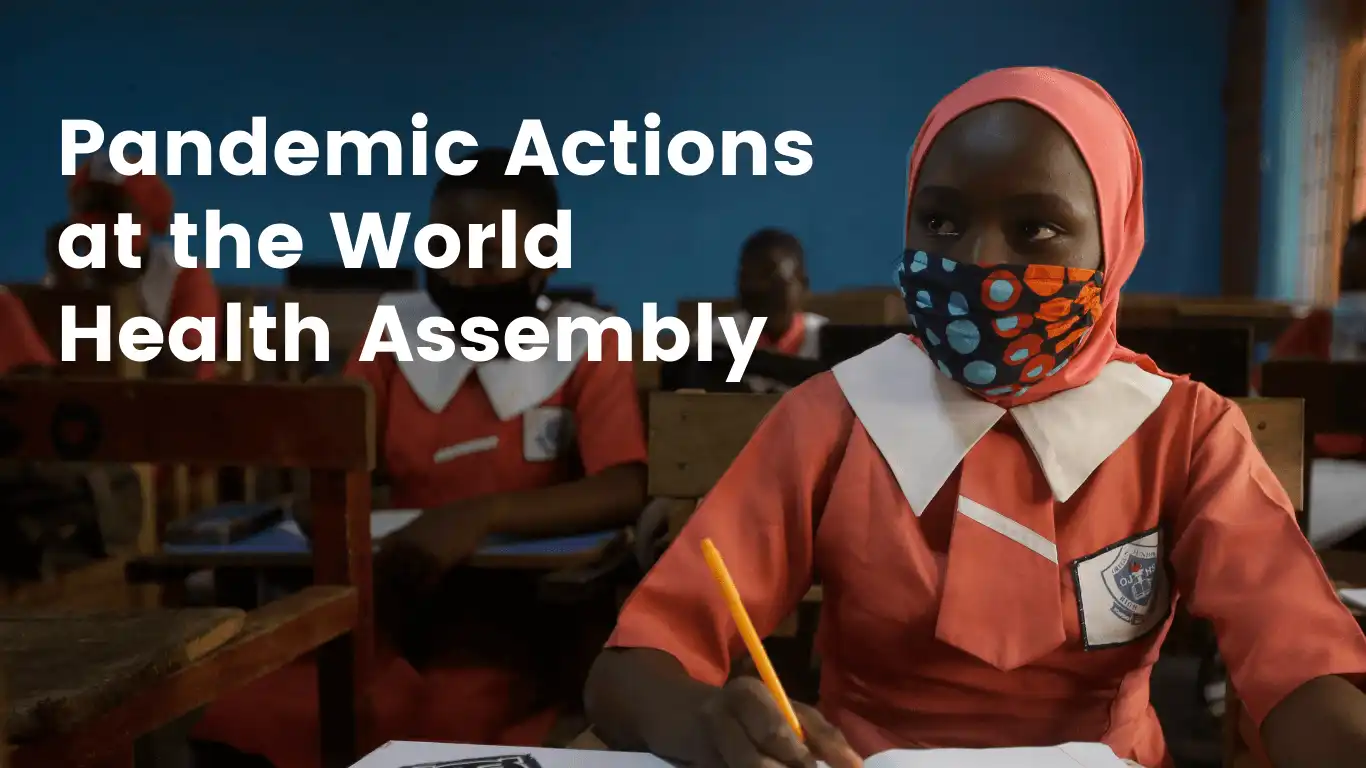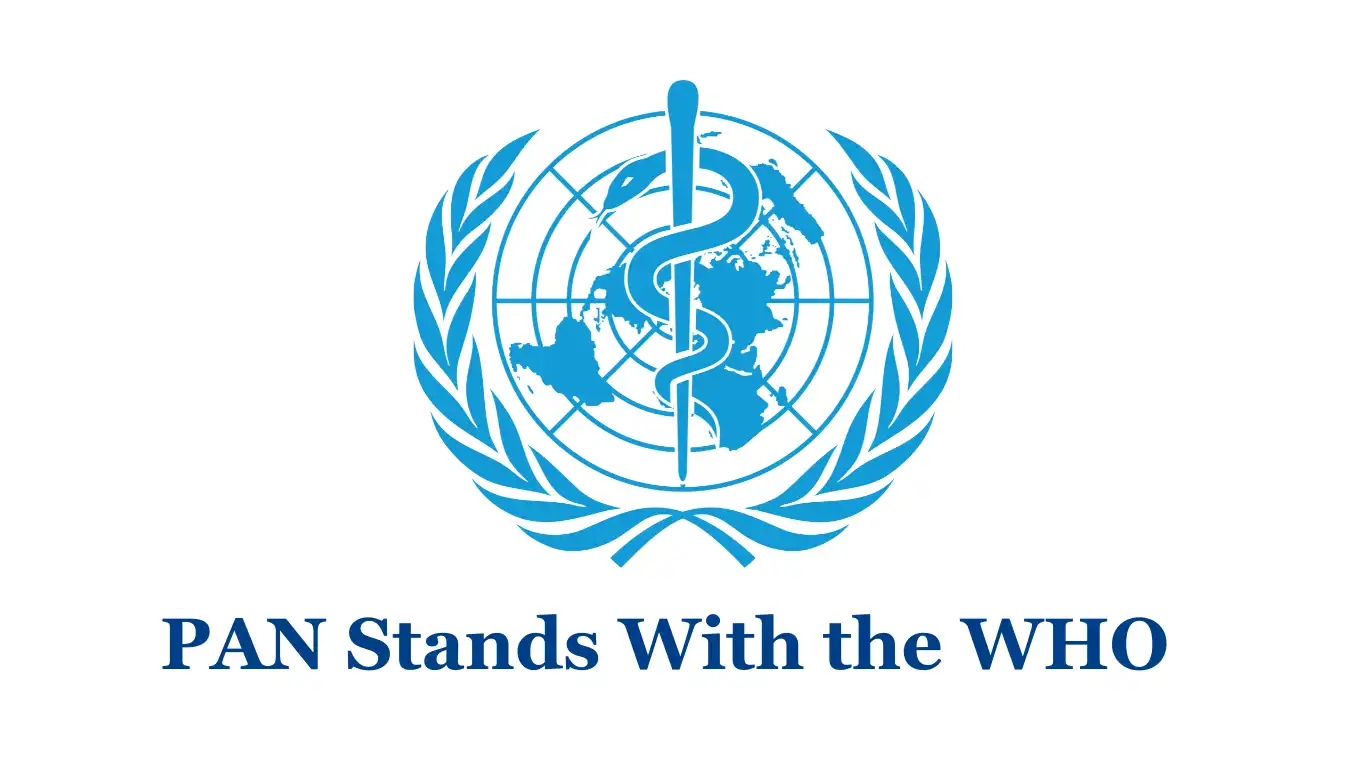Last week’s second Global COVID-19 Summit challenged the growing complacency around the pandemic with commitments from over 35 countries as well as from the private sector, philanthropy, and civil society. Next up, this year’s 75th World Health Assembly (WHA75) will be a crucial opportunity to build on that momentum and rally more countries and leaders around a truly global framework to prevent, prepare, and respond to pandemic threats.
Here are three of the key priorities that Pandemic Action Network will be following during these essential debates:
- WHO’s vision and role in the global health security architecture
At WHA75, the World Health Organization (WHO) will put forward its vision for Strengthening the Global Architecture for Health Emergency Preparedness, Response and Resilience (HEPR). Broadly speaking, Pandemic Action Network is aligned with WHO’s vision for a stronger global architecture that focuses on improving governance, systems, and financing, grounded in the principles of equity, inclusion, and coherence (read our feedback) but we also think the framework is too WHO-centric. The last two years have shown that leadership and coordination for pandemic preparedness and response must extend beyond WHO, and beyond the health sector. That’s why we support the proposal to establish a governance body at the level of Heads of Government such as a Global Health Threats Council/Global Health Emergency Council — as supported by the Independent Panel for Pandemic Preparedness and Response (the Independent Panel) and the G20 High-Level Independent Panel on Financing the Global Commons (HLIP). Pandemic threats must be recognized as the security and economic priorities they are, and translate to leadership and accountability at the highest level. We also think the principle of inclusion must apply not only to all countries, but also to non-state actors (NSAs) — like our Network partners — around the world. We’ll be watching for the final report from the Director-General, the reactions from Member States, and whether low- and middle-income countries and NSAs have an opportunity to be part of the discussions going forward.
- Sustainable financing for WHO
The COVID-19 pandemic has shown that there is a major discrepancy between the expectations we have of WHO and its level of funding. Increasing WHO’s assessed contributions up to 50% of its budget is likely to be one of the most significant policy decisions we hope to see adopted at the WHA75. While the proposal is certainly not as ambitious as we and others have been urging — both in terms of amount and time frame for implementation (countries will have many years to increase their assessed contributions) — it will be an important long overdue step. A stronger WHO is in the interest of all governments and their citizens. Investments in WHO produce an estimated economic return of US$35 for every $1 invested. The agreement to improve WHO’s financing model should not only lead to a WHO with increased capacity to detect, prevent, and respond to pandemic threats, but also to one that is more agile, transparent, and accountable. (For a deeper dive on this, watch our conversation with Björn Kümmel, Chair of WHO’s Working Group on Sustainable Financing). We’ll be watching to see if countries are willing to start paying their fair share toward building a healthier, safer world.
- Progress on reform of the International Health Regulations (IHRs)
Also looming large is the decision on proposed amendments to the International Health Regulations (IHRs). The IHRs (last updated in 2005) underpin the current international system to govern and drive the world’s response to global health emergencies. A proposal from the U.S. to fast-track amendments to the IHRs and give WHO greater powers in the face of emerging global health threats and potential pandemics drew significant pushback amid concerns about sovereignty. As of May 16, however, it looks like the most controversial amendments will be tabled for a longer country negotiation process, leaving mostly procedural changes on timelines for adoption at WHA75. If this sticks, it’s disappointing but not surprising, as it underscores a persistent lack of urgency and ambition to fix some of the systemic problems that resulted in this deadly pandemic. While not a silver bullet, targeted amendments to the IHRs are a necessary step toward greater accountability for improved pandemic prevention, preparedness, and response. We hold out hope that there will be some consensus around speeding up the reform process, both for the IHRs and on the range of other priorities Member States have been discussing in the Working Group for Preparedness and Response over the past year.
One year ago, the Independent Panel called for bold action to make COVID-19 the last pandemic. Now, one year later, as the WHA75 comes together, the Panel’s former co-chairs have issued a scathing progress — or lack-of-progress report — that calls out inaction and incrementalism to date.
Say the Panel co-chairs, Helen Clark and Ellen Johnson Sirleaf: “The work underway to transform the international system lacks coherence, urgency, and focus. Reform proposals are being deliberated in different fora, but are not sufficiently connected, and remain still largely stuck in processes that will take years to deliver.”
Sadly, we have to agree. We hope that this year’s critical WHA75 can reverse some of that inertia and serve as a reminder that humanity deserves leadership that is willing to make a pandemic-proof future both a priority and a reality.



